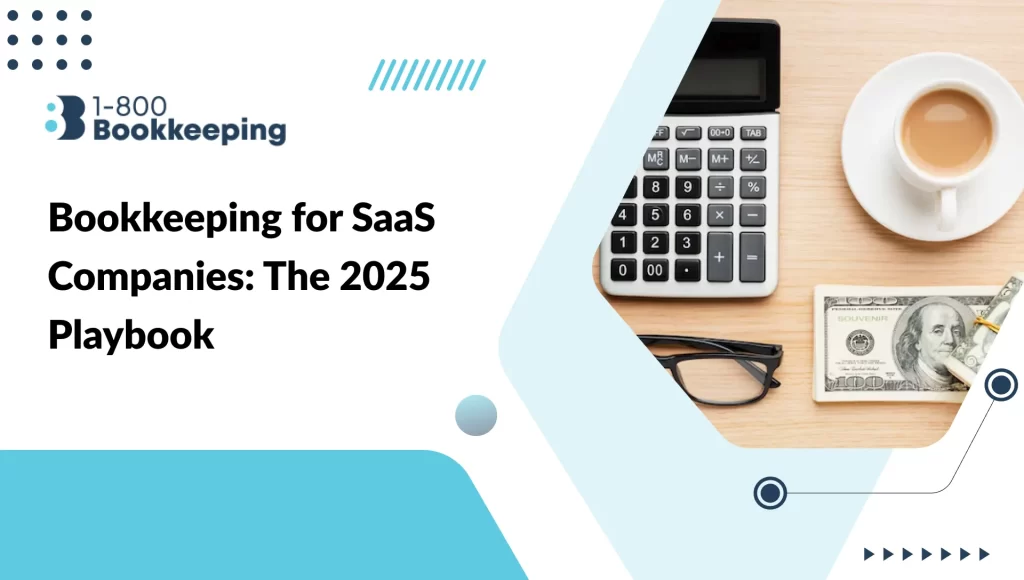When running a business, especially a small one, it’s easy to get overwhelmed by the numbers. That’s where bookkeepers come in. Hiring a bookkeeper can save you time, reduce stress, and ensure your business finances are in tip-top shape. In this article, we’ll break down the ins and outs of hiring a bookkeeper, why it’s a smart move for business owners, and what to look for when choosing the right one.
What is a Bookkeeper?
A bookkeeper is the unsung hero of business operations. They keep track of daily financial transactions, ensuring that every cent is accounted for, from sales revenue to expenses. Their role is all about accuracy—organizing and recording data so that you, as a business owner, always know where your money is going and how your business performs financially.
But bookkeepers don’t just handle the grunt work of entering numbers into spreadsheets. They also provide essential insights that help you make sound financial decisions. A well-kept ledger is the foundation of any successful business, and that’s precisely what a good bookkeeper provides.
Key Responsibilities of a Bookkeeper
- Recording all financial transactions
- Managing payroll
- Reconciling bank statements
- Invoicing clients and following up on payments
- Preparing basic financial reports
Why Choose 1800 Bookkeeping for Your Business Needs?
At 1800bookkeeping, we understand that keeping track of your finances can be overwhelming for small business owners. Whether you’re just starting or looking to streamline your operations, hiring a bookkeeper is an intelligent step to ensuring your business’s long-term success. As experts in bookkeeping, we offer a range of services designed to help you stay organized, save time, and focus on growing your business.
One of the biggest advantages of working with 1800bookkeeping is our flexibility. We know that every business is different, so we tailor our services to meet your unique needs. Whether you need help managing payroll, reconciling bank statements, or preparing financial reports, our team of experienced bookkeepers has you covered. We use top-notch bookkeeping software, ensuring your data is accurate, up-to-date, and easily accessible whenever needed.
Hiring a bookkeeper isn’t just about keeping your books in order—it’s about gaining valuable insights into your financial health. Our comprehensive reporting gives you a clear picture of your cash flow, profitability, and expenses. This allows you to make informed decisions and strategically plan for the future.
Another major benefit of working with us is your peace of mind come tax season. With 1800bookkeeping handling your records, we ensure everything is organized and compliant with tax laws, saving you from the hassle of last-minute preparations and minimizing the risk of errors.
We’re also proud to offer personalized support. Our clients appreciate the one-on-one attention they receive from our team, ensuring that no question goes unanswered and no concern is too small. Whether you need a full-time bookkeeping solution or occasional support, we’re here to help.
If you’re ready to simplify your bookkeeping and focus on what matters—growing your business—reach out to 1800bookkeeping today. Let us take the stress of financial management off your plate so you can get back to doing what you do best.
Pros of Hiring a Bookkeeper
The benefits of hiring a bookkeeper go beyond simply having someone else do the math. Here are some compelling reasons to consider adding a bookkeeper to your team.
Saves Time and Reduces Stress
Time is your most valuable asset as a business owner. By delegating financial tasks to a bookkeeper, you free up weekly hours to focus on growing your business instead of getting lost in spreadsheets.
Accuracy and Expertise
Bookkeepers are trained professionals who are less likely to make mistakes when keeping your financial records straight. Their expertise means you get precise, organized data to help you comply with tax laws and avoid any financial mishaps.
Financial Insights and Better Decision-Making
You can make informed decisions about your business with accurate, up-to-date books. A good bookkeeper will generate financial reports that help you understand cash flow, profitability, and where your money is going—helping you avoid costly mistakes.
Stress-Free Tax Season
Taxes are a pain, but with a bookkeeper keeping track of everything year-round, tax season becomes much less stressful. They’ll have all your documents organized and ready to hand off to your tax accountant, saving you from the last-minute scramble.
Cons of Hiring a Bookkeeper
While hiring a bookkeeper has many advantages, it’s important to consider the downsides before making a decision. Here are a few potential cons to hiring a bookkeeper.
Costs
Bookkeepers don’t work for free. Hiring a bookkeeper can add a significant monthly cost depending on your business size and complexity. However, this should be viewed as an investment rather than an expense, given the time saved and errors avoided.
Loss of Direct Control
For some business owners, handing off financial tasks can feel uncomfortable. You’re trusting someone else with critical business information, and that requires a level of trust. Finding a bookkeeper who understands your business’s nuances and aligns with your financial goals is essential.
Risk of Fraud
This is a rare occurrence, but it’s possible that an untrustworthy bookkeeper could engage in fraudulent activities if left unchecked. However, you can mitigate this risk by thoroughly vetting candidates and using financial software to monitor activity.
What Are Some Types of Bookkeepers?
Bookkeepers aren’t one-size-fits-all, and there are several different types, depending on your needs.
Freelance Bookkeepers
Freelance bookkeepers are independent professionals who offer services to multiple clients. They’re often more flexible and affordable than hiring someone full-time, which makes them a good option for small businesses with simple bookkeeping needs.
In-House Bookkeepers
An in-house bookkeeper is a full-time employee solely managing your company’s finances. This option is ideal for businesses with more complex financial needs, as having someone on-site allows for more direct oversight.
Virtual Bookkeepers
Virtual bookkeepers operate remotely and use cloud-based software to manage your financial records. This can be a more affordable and efficient, as you don’t have to provide office space, and everything can be handled online. Many small business owners opt for virtual bookkeepers because of the flexibility and cost savings they offer.
Bookkeeping Firms
Hiring a bookkeeping firm is another option, particularly if you need a range of services beyond basic bookkeeping. These firms often employ a team of experts, including CPAs and tax professionals, to offer comprehensive financial management services.
What Should a Business Owner Look for When Hiring a Bookkeeper?
The right bookkeeper can make all the difference in your business’s financial health. Here’s what you should keep in mind during the hiring process.
Qualifications and Experience
Not all bookkeepers are created equal. Look for candidates with relevant qualifications, such as a certification from a recognized bookkeeping association. Experience is also critical—ask potential hires about the industries they’ve worked in, the software they’re familiar with, and the scale of the businesses they’ve managed.
Trustworthiness
Trust is paramount since your bookkeeper will have access to sensitive financial information. Look for candidates with strong references and a solid reputation. For added security, consider running a background check.
Attention to Detail
Bookkeeping is all about precision. Your bookkeeper must have a sharp eye for detail to catch small errors that could become big problems later. During the interview process, ask them how they ensure accuracy in their work.
Technological Proficiency
Today’s bookkeeping is increasingly digital. Your ideal bookkeeper should be familiar with leading bookkeeping software like QuickBooks, Xero, or FreshBooks. They should also be able to handle cloud-based systems and data management.
Communication Skills
Your bookkeeper should be able to explain complex financial details in a way that’s easy for you to understand. Strong communication skills are key to ensuring you stay informed about your business’s financial health.
How to Hire the Right Bookkeeper for Your Business
Once you know what you’re looking for, it’s time to start the hiring process. Here’s a step-by-step guide to ensure you find the right fit for your business.
Step 1: Define Your Needs
Before you start looking, know exactly what you need from a bookkeeper. Do you need someone full-time or part-time? Do you need help with just basic bookkeeping, or are you looking for someone who can also handle payroll and financial reporting?
Step 2: Write a Clear Job Description
When advertising the role, be clear about what you expect from your bookkeeper. List the specific tasks they’ll be responsible for and the qualifications you’re looking for. This will help you attract the right candidates.
Step 3: Use the Right Channels
There are many ways to find bookkeepers, from online job boards to specialized bookkeeping firms. Platforms like Upwork or Fiverr can be useful if you’re looking for a freelancer. For in-house roles, you might want to advertise through traditional channels or consult with a staffing agency.
Step 4: Interview and Test
Once you’ve narrowed your list of candidates, interview them to understand their expertise and how well they’d fit within your business. It’s also a good idea to give them a small bookkeeping task to test their accuracy and attention to detail.
Step 5: Check References
Always check references before hiring a bookkeeper. Speaking to past clients or employers can give you insight into their reliability and trustworthiness.
Take Control of Your Business Finances Today
Hiring a bookkeeper is one of the best investments you can make for your business. They save you time, provide peace of mind, and help you make informed financial decisions. Whether hiring someone in-house or outsourcing the role, finding the right bookkeeper can transform your business’s financial health.
If you’re ready to take the next step, start by defining your business needs from a bookkeeper and search for the perfect fit. With the right person on your team, you’ll have the financial clarity and control to grow your business confidently.
Feeling Overwhelmed by Bookkeeping? We Can Help.
Running a business is demanding, and keeping track of your finances can be a never-ending chore. Many business owners need help with the complexities of bookkeeping, which can leave them frustrated and behind.
1-800 Bookkeeping offers expert services to streamline your financial processes and empower you to make informed decisions.
Our team of seasoned professionals understands the unique challenges businesses of all sizes face. We can help you:
- Free Up Valuable Time: Offload your bookkeeping tasks to our dedicated professionals.
- Gain Peace of Mind: Ensure your financial records are accurate and up-to-date.
- Make Smarter Decisions: Get actionable insights into your business performance through clear and concise reports.
- Feel Confident: Make informed financial decisions based on reliable data.
Don’t let bookkeeping hold you back from achieving your business goals. Contact 1-800 Bookkeeping today for affordable bookkeeping solutions.
FAQs
1. What’s the difference between a bookkeeper and an accountant?
While bookkeepers handle the day-to-day recording of financial transactions, accountants focus on analyzing that data and offering financial advice. In short, bookkeepers maintain records, while accountants interpret and use those records to help guide business decisions.
2. How much does it cost to hire a bookkeeper?
The cost of hiring a bookkeeper varies depending on their experience level, location, and whether they work full-time or freelance. Expect to pay between $30 and $75 per hour for a freelance bookkeeper or around $40,000 to $60,000 annually for a full-time employee.
3. Do I need a bookkeeper if I use accounting software?
Accounting software can make bookkeeping easier, but it can’t replace the expertise of a professional. A bookkeeper ensures that your records are accurate and up-to-date, which is critical for taxes and financial decision-making.
4. How often do I need to meet with my bookkeeper?
This depends on the complexity of your business. Some small businesses meet with their bookkeepers monthly, while others may require more frequent updates. Weekly meetings may be necessary if your business has a high volume of transactions.
5. Can a bookkeeper help with taxes?
Yes, many bookkeepers can assist with tax preparation by organizing financial records and ensuring all necessary documentation is in place. However, for more complex tax issues, it’s usually best to consult a tax accountant.





